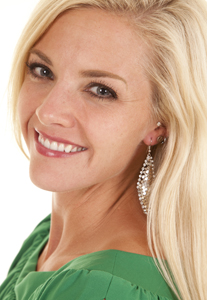Gum Disease Awareness
December 24th, 2025

February is Gum Disease Awareness month, a timely reminder that preventing gum disease is one of the best ways to protect our oral health.
Gum disease is easily treated in its earliest stages. Left untreated, the progressive nature of gum disease makes it one of the leading causes of tooth loss in adults.
Let’s take a moment in this shortest month of the year to discuss how understanding, treating, and, above all, preventing gum disease can help us enjoy long-lasting healthy smiles.
How Gum Disease Develops
Gingivitis is the first, mild stage of gum disease.
- Gingivitis begins with plaque.
- Plaque irritates gum tissue, causing inflammation, which is the body’s reaction to injury or infection.
- Typical symptoms include gums which are swollen or red. The gums might feel tender or bleed easily when you brush or floss. You could develop persistent bad breath.
With proper care, gingivitis is reversible. Because gingivitis symptoms can be very mild, they’re sometimes overlooked. That’s why it’s important to keep up with regular checkups to discover and treat the disease in its earliest stages.
Periodontitis is a serious gum disease which is destructive to the structures which support our teeth: gums, connective tissue, and bone.
- Plaque, when it’s not removed, hardens into tartar, which can form on the tooth above and below the gumline.
- The gums pull away from plaque and tartar deposits, creating a space between the gum tissue and tooth roots.
- As the gums continue to recede, pockets form between the teeth and gums.
- Infection-causing oral bacteria thrive in these pockets. Gum infections can lead to painful abscesses—but gum disease is not just an infection.
- The body normally responds to bacterial infection with inflammation. With periodontitis, this inflammation becomes destructive chronic inflammation.
- Over time, chronic inflammation and infection break down the gum tissue, bone, and connective tissue holding teeth in place. Teeth become loose or shift out of alignment.
The tooth’s support structure eventually becomes so compromised that extraction is the only option. That’s why prompt treatment is essential.
Treating Gum Disease
Several options are available to treat gum disease, depending on its severity.
Treatment for gingivitis can be as simple as paying more careful attention to your brushing and flossing and, if necessary, seeing the team at Issaquah Valley Dental Care for a professional cleaning. In some cases, Drs. Arti and Ashi might recommend an antimicrobial mouthwash or rinse.
Periodontitis requires specialized treatment from your dentist or periodontist, and this treatment will be based on how advanced the condition is:
- Topical, oral, or time-release medications treat infection.
- Non-surgical deep cleaning procedures called scaling and root planing remove plaque and tartar above and below the gumline, allowing gum tissue to reattach to the tooth.
- Flap surgery treats more advanced gum infection by reducing pocket depth and re-securing the gums snugly around the teeth.
- If needed, bone grafts, gum grafts, and other regenerative procedures are available which help repair and restore damaged tissue.
Preventing Gum Disease
What many people aren’t aware of is just how preventable gum disease is!
- Brush twice a day, or as often as your dentist recommends.
- Use proper brushing technique, angling your brush toward the gums to gently clean around and below the gum line.
- Use a soft-bristled brush to protect both gum tissue and tooth enamel.
- Floss once each day or as directed by your dentist. Flossing removes food particles and plaque between the teeth, and it also helps remove plaque from the area around the gum line.
- Conditions such as family history, hormonal changes, medical conditions, age, poor diet, smoking, and other factors can increase your chances of developing gum disease. Talk to Drs. Arti and Ashi if you are in a higher risk group about proactive gum care.
- Having your teeth cleaned every six months, or as recommended, will remove tartar buildup which brushing alone can’t handle.
- You can get tips for better brushing and flossing techniques from the team at Issaquah Valley Dental Care in Issaquah, too!
Last, while gum health is essential for dental health, you may not be aware that healthy gums could affect more than just your oral health. Scientists are studying the potential links between gum disease and conditions such as heart disease, diabetes, and arthritis.
Even when it seems like there aren’t enough days in the month or hours in the day, it takes just a few minutes daily to care for your gums and teeth. And when you’re aware of just how much those few minutes mean to a healthy smile, it’s time well spent!



